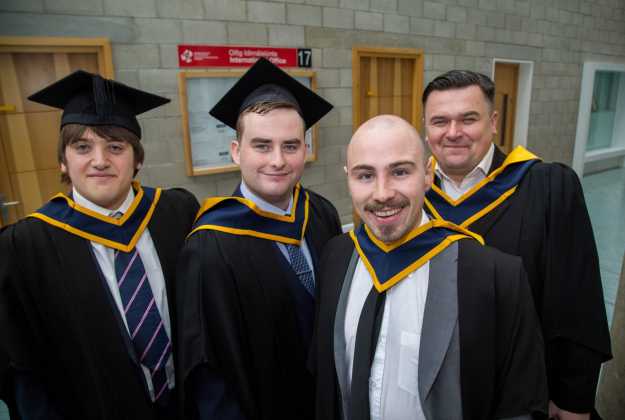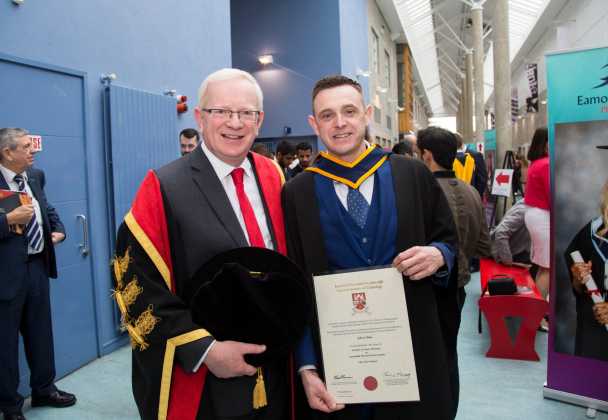
The President of Limerick Institute of Technology has warned against the dangers of student loans as the sole means of financing third level education, describing it as a potential significant barrier to education.
Professor Vincent Cunnane made his comments during his speech at the Limerick Institute of Technology’s Conferring Ceremony in Limerick today (Thursday).
Addressing 1,700 graduates in diverse areas ranging from fashion design to marketing, engineering and construction, and social science to hospitality, Professor Cunnane said that any move to implement this particular Cassell Report recommendation would curtail access to further higher education for low income and potentially middle income families.
“I would not object to Income Contingent Loans (ICLs) being considered in conjunction with the current system, but more and more evidence is emerging against the option of introducing fees for all students, removing grant aid and relying of ICLs as a sole form of financing education in this country.
“An IFS (Institute of Fiscal Studies) report into the funding of higher education in England has found the abolition of maintenance grants and introduction of such loans has left students from the poorest 40 per cent of families graduating with the largest debt, and middle income earners carrying the greater burden when it comes to repayment,” said Professor Cunnane.
“The study also found that the switch to fee-based funding brought a 25 per cent increase in funding per student per degree, but at what cost to the student, society and the state?” he asked.
“London Economics, in another study on the impact of student loan repayments on graduate taxation, found that student loans impose a significant additional tax burden upon graduates in their midlife years, with those in the mid range earnings negatively impacted to the greatest extent.
“The analysis found that those with average earnings, typically our nurses, teachers and social workers, will be impacted by their student loans for their entire working lives. This will no doubt result in student applicants less likely to choose a career in these areas, which in turn will have a detrimental effect on our society,” he added.
“I have heard the argument that the student benefits most from an education and therefore they would pay the full price,” continued the LIT president. “Yes the individual benefits, but it is our society, our state and our government that ultimately benefits most.”
“Have we come up with a better way of positively impacting society than through educating our people so they can maximise their ability and potential? I would like to hear it if we have.
“Educating the individual has a lasting impact on the individual, but a longer term impact on family, community, society and our economy. Education positively impacts the health and prosperity of the individual; the national health, social, tax, education and justice services; and contributes multiple times over to the economy of a country. For ever more the state is the net benefactor of that education.
“The danger of relying solely on ICLs to fund our education system is to risk access to education for those who most benefit from it,” said Professor Cunnane.
In the course of his speech the LIT president also reflected on what was a very positive year for the five campuses that make up Limerick Institute of Technology.
“Earlier this year we received planning permission for a €14 million engineering-focussed campus at Coonagh, which should be operational for our next academic year. Just a few weeks ago, the college secured €20 million for a Science and Information Technology building on the Moylish Campus through the new national Higher Education PPP programme.
“We are building these state of the art centres of education, in the expectation that our future engineers, software designers, IT experts and business people will come, but they can only find their way here if the path is clear. I fear ICLs will eventually be an obstacle on that path to education.”
See more education related news here













